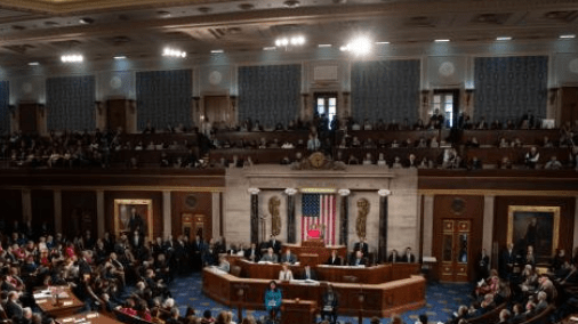SOTU 2024: Unparalleled spending, regulation, and dependency

In bumper-sticker fashion, we have fondly summed up Joe Biden’s recent State of the Union Addresses (SOTU) as appeals for more spending, regulation and dependency on expanded federal authority.
Biden’s 2024 SOTU address will comprise more of the same, but with a twist. Biden will be most interested in ensuring perpetuity of various new progressive spending and regulatory offices, committees and councils he has already successfully erected during his first term.
Biden, whose own media allies fret over his “age and vitality,” will enter the House chamber knowing this could be his last SOTU even if Democrats retain the presidency next year and employ their hush-hush “Plan B,” so it is on his vast domestic economic and social agenda that Biden will likely seek to cement his personal legacy.
Naturally, Biden’s celebration of advancing his sweeping regulatory and social programs will be interrupted by his need to address Ukraine, abortion, and the border (all in the headlines, and as can be anticipated given the guest list).
But while the Associated Press says to “keep your ears open for any new policy proposals,” it is more likely that there will not be a new “laundry list” in this election year, nor does there need to be.
What most commentators fail to recognize is that Biden does not need to announce new programs, because the all-encompassing interventions he has already implemented (too often secured with bipartisan support) have removed many restraints on the federal government. While folks watch for verbal miscues and gaffes, Biden can actually relax on Thursday night.
Biden’s epic advances of the progressive left’s transformative agenda span domains like child care, education and loan forgiveness, climate and green energy conceits (complete with a “Climate Corps”), equity (coerced equal outcomes rather than equal opportunity), heightened antitrust regulation and economic micromanagement, interventions in infrastructure from tap water to electric vehicles to telecommunications welfare, price controls and “junk fee” regulation encompassing airlines, hotels, pharmaceuticals, credit cards, and more, displacements of competitive free enterprise with “public-private partnerships”, government “blueprints” in fields like artificial intelligence, supply-chain interventions, and plenty more.
The liberty movement, admirably set against such rampant statism, is fond of saying “Institutions Matter.” But Biden understands this reality more than most opponents do and has erected “swarms of officers” from environmental justice bodies to supply chain councils to prove it.
What’s more, Biden’s clever “whole-of-government” approach ensures numerous agencies have fingers in all these pies, such that the removal of one still leaves the underlying progressive regulatory agenda intact. And while Biden successfully eliminated Trump’s executive orders that had aimed at streamlining government and its regulation, a future president’s ability to instead remove progressive programs by stroke of the pen is not assured, nor can one count on the GOP to follow through on removing the new offices birthed in the Biden era.
Biden can count on much of his agenda to stick, even if this does turn out to be his last SOTU. Along with inertia on what’s in place, without abrupt change, Biden’s agenda will be everlastingly enabled by the federal government’s extensive contracting and procurement heft in the marketplace, including its “monopsony” status as the world’s largest purchaser. This is part of the reason we emphasize that, in a government as large as this one has become, spending is itself regulation, and policymakers need a “Grand Unification” theory to wrestle with both simultaneously.
By contrast to these new “institutions that matter,” the Republican response from Alabama Senator Katie Britt will stand at a distinct disadvantage given the party’s own culpability in Biden’s suspect achievements. This very week, the GOP failed to deny appropriations for easy targets even as debt approaches $35 trillion. Biden himself gloats repeatedly over Republicans campaigning back home over pork they ostensibly fight in Washington.
The true State of the Union is that the national debt now grows by $1 trillion every three months, creating extraordinary vulnerabilities, especially in the event of another economic shock or crisis.
The further State of the Union is that, even in the face of these weaknesses and looming fiscal crisis, Biden remorselessly “trillions down” on more big government, daring anyone to do anything about it.
When change happens, it will require confronting Mistakes of the Union. An aggressive shift toward economic liberalization, elimination of entire federal departments and regulatory agencies, a fresh wet embrace of federalism and the fostering of individual responsibility rather than dependency will reflect the true “Soul of the Nation,” despite Biden’s kidnapping of the phrase.
For further reading, and for what should be the GOP response, see:
“Congress Must Mobilize To Halt Biden’s Radical Administrative State Transformation”